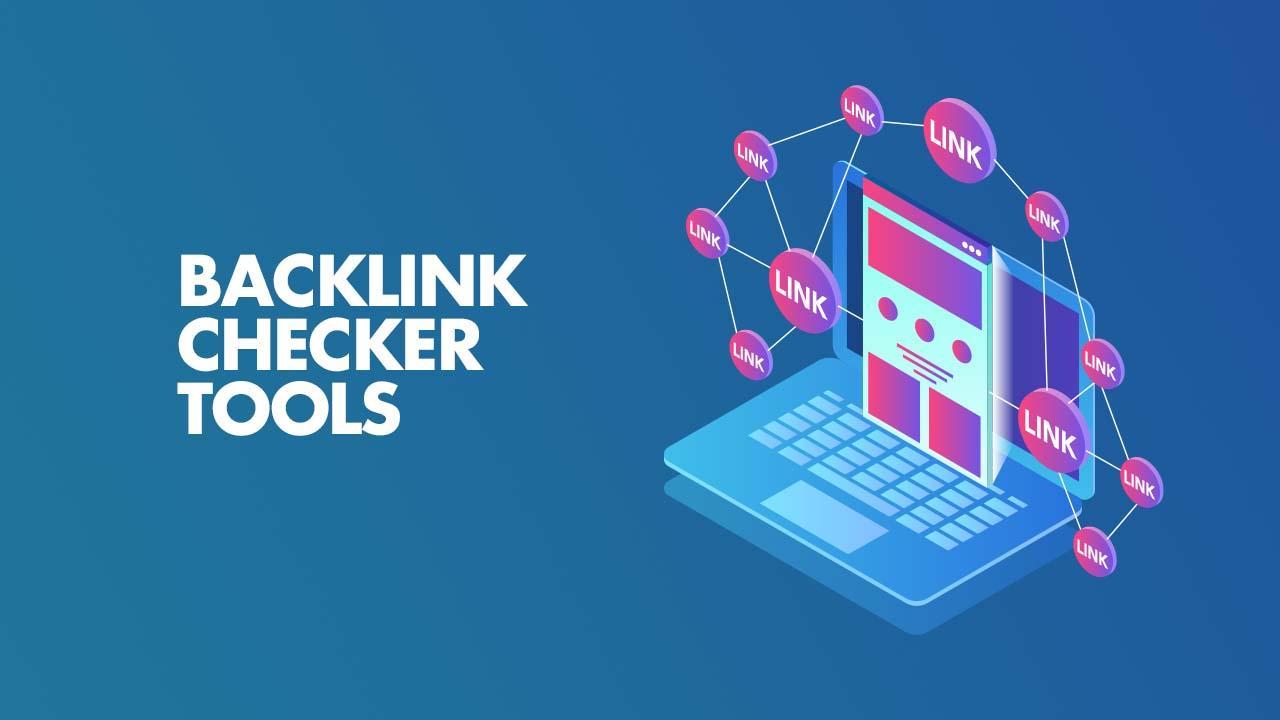
The Ultimate Guide to Free Online Grammar and Spell Check Tools in 2025

The Ultimate Guide to Free Online Grammar and Spell Check Tools in 2025
I still remember the first time I hit "publish" on a blog post, my heart racing with excitement and a touch of dread. Would my readers notice that sneaky typo in the second paragraph? Or that awkward comma splice I missed during my late-night editing session? As a budding blogger, I learned quickly that even the most compelling ideas could fall flat if they were riddled with errors. That’s when I discovered the magic of free online grammar and spell check tools—digital lifesavers that polished my writing and boosted my confidence. Fast forward to 2025, and these tools have become smarter, more accessible, and indispensable for writers of all levels. In this guide, I’ll walk you through the world of free grammar and spell check tools, sharing insights, personal experiences, and actionable tips to help you write with clarity and precision.
Why Grammar and Spelling Matter in the Digital Age
In a world of 280-character tweets and instant messaging, it’s tempting to think grammar and spelling are relics of a bygone era. But nothing could be further from the truth. Whether you’re crafting a blog post, drafting an email to a client, or posting on social media, clean writing signals professionalism and credibility. Studies have shown that poor grammar can erode trust, cost businesses clients, and even lower academic grades. A 2021 study by Grammarly found that 59% of professionals consider grammatical errors a dealbreaker in business communication.
For me, the stakes became clear when a reader commented on one of my early blog posts, pointing out a misspelled word that completely changed the sentence’s meaning. It was a humbling moment, but it drove home the importance of getting it right. Free online grammar checkers can catch those pesky mistakes, saving you from embarrassment and ensuring your message shines through.
The Evolution of Grammar and Spell Check Tools
Back in the day, spell check meant red squiggly lines in Microsoft Word. But today’s tools, powered by artificial intelligence, go far beyond catching typos. They analyze context, suggest style improvements, and even help you adjust the tone of your writing. From bloggers to students to business professionals, these tools cater to anyone who writes in English—or even other languages like Spanish, French, and German.
The beauty of these tools lies in their accessibility. Most are free, require no software installation, and work seamlessly across platforms like browsers, Google Docs, and WordPress. Whether you’re a non-native speaker or a seasoned writer, these tools act like a personal editor, catching errors your eyes might miss. Let’s dive into some of the best free options available in 2025 and explore how they can transform your writing.
Top Free Grammar and Spell Check Tools in 2025
Grammarly: The Gold Standard
When I first stumbled upon Grammarly, it felt like finding a writing mentor who never sleeps. Grammarly’s free version is a powerhouse, catching spelling, grammar, and punctuation errors with remarkable accuracy. It integrates with browsers, Microsoft Word, and even mobile apps, making it a versatile companion for writing on the go. What sets Grammarly apart is its ability to detect contextual errors—like using “affect” instead of “effect”—and offer clear explanations to help you learn.
I once used Grammarly to polish a cover letter for a freelance gig. It flagged a run-on sentence I’d overlooked and suggested a more concise phrasing that made the letter sound sharper. The result? I landed the job. While Grammarly’s premium version offers advanced features like tone adjustment and plagiarism detection, the free version is more than sufficient for everyday writing needs. You can try it at Grammarly’s website.
QuillBot: The Multitasking Marvel
QuillBot caught my attention when I needed to rewrite a blog post to sound more engaging. Its free grammar checker is a gem, correcting spelling, punctuation, and basic grammar errors with a single click. What makes QuillBot unique is its suite of additional tools, like a paraphraser and summarizer, which are perfect for bloggers looking to repurpose content or simplify research. It’s also multilingual, supporting languages like German and French, which is a boon for global writers.
I’ve used QuillBot to refine social media captions, catching errors in real-time as I typed. Its Chrome extension is a lifesaver for quick edits, and the no-sign-up option means you can dive right in. Check it out at QuillBot’s website.
LanguageTool: The Multilingual Maestro
For writers juggling multiple languages, LanguageTool is a standout. This AI-powered tool supports over 30 languages, making it ideal for non-native English speakers or multilingual bloggers. It catches spelling, grammar, and style issues, with a focus on nuanced errors like misplaced commas or incorrect verb forms. I tested LanguageTool on a guest post I wrote in Spanish, and it caught a subtle tense error that could have confused readers.
LanguageTool’s browser add-on works across platforms like WordPress and Gmail, and its privacy-first approach ensures your text isn’t stored. It’s a fantastic option for writers who value versatility and data security. Explore it at LanguageTool’s website.
ProWritingAid: The Creative Writer’s Ally
ProWritingAid is a favorite among creative writers, and its free version offers robust grammar and spelling checks. What I love about it is its detailed reports, which highlight issues like overused words or pacing problems—perfect for bloggers crafting long-form content. When I wrote a 2,000-word travelogue, ProWritingAid helped me trim repetitive phrases, making the piece more engaging.
While its premium version dives deeper into style and structure, the free tool is excellent for basic editing. It’s especially useful for WordPress users, as it integrates with the platform’s editor. Visit ProWritingAid’s website to give it a spin.
Scribbr: The Academic’s Choice
Scribbr’s free grammar checker is tailored for students and academics, but bloggers can benefit too. It excels at catching spelling, punctuation, and word choice errors, with a large dictionary to handle specialized terms. I used Scribbr to proofread a research-heavy blog post, and it flagged a misused technical term that could have undermined my credibility.
Its clean interface and one-click corrections make editing a breeze, and it supports multiple languages. For writers tackling formal or academic content, Scribbr is a must-try. Check it out at Scribbr’s website.
How These Tools Work: A Peek Under the Hood
Most free grammar checkers use AI to analyze your text, comparing it against vast databases of grammar rules, dictionaries, and published works. They flag errors by highlighting them in real-time, often with suggestions for corrections. For example, Grammarly uses machine learning to understand context, catching homophone errors like “their” vs. “there.” QuillBot and LanguageTool leverage similar tech but add features like paraphrasing or multilingual support.
The process is simple: paste your text into the tool, hit the check button, and review the suggestions. Some tools, like ProWritingAid, go a step further by analyzing style and readability, helping you craft prose that’s not just correct but compelling. The best part? These tools learn from your writing habits, offering personalized suggestions over time.
The Benefits of Using Free Grammar Checkers
Using these tools has transformed my writing process in several ways. First, they save time. Proofreading a 1,000-word blog post manually can take hours, but tools like Grammarly or QuillBot do it in seconds. Second, they boost confidence. Knowing my work is error-free lets me focus on creativity rather than worrying about typos. Third, they’re educational. Each correction comes with an explanation, turning mistakes into learning opportunities.
For bloggers, these tools are a game-changer. They ensure your posts are polished, which can improve reader engagement and SEO rankings. Search engines like Google favor error-free, readable content, and clean writing keeps readers on your page longer. Plus, with integrations for WordPress and social media, you can edit on the fly, whether you’re drafting a post or tweeting a quick update.
The Limitations: What Free Tools Can’t Do
While free grammar checkers are powerful, they’re not perfect. They may miss nuanced errors, like cultural idioms or highly technical terms. For instance, when I wrote a post about blockchain technology, Grammarly flagged industry-specific jargon as errors, which required manual review. Free versions also lack advanced features like plagiarism detection or in-depth style analysis, which are often locked behind paywalls.
Human proofreaders still have an edge for complex projects like novels or academic papers. Tools can’t replicate the intuition of a skilled editor who understands your voice or audience. That said, for most blogging needs, free tools get you 90% of the way there.
Tips for Maximizing Free Grammar Checkers
To get the most out of these tools, I’ve learned a few tricks over the years. First, always double-check suggestions. AI is smart, but it can misinterpret context, especially with creative writing. Second, use multiple tools for critical projects. I often run a blog post through Grammarly for grammar and QuillBot for paraphrasing to ensure a polished final draft. Third, customize settings where possible. Tools like Grammarly let you choose between American and British English, which is crucial for consistency.
Finally, don’t rely solely on AI. Read your work aloud or share it with a trusted friend for feedback. This hybrid approach—combining tech and human insight—produces the best results. For more proofreading tips, check out this guide from Purdue OWL.
The Future of Grammar Checkers in 2025
As AI continues to evolve, grammar checkers are becoming more intuitive. In 2025, we’re seeing tools integrate with voice assistants, offer real-time collaboration features, and even suggest content ideas based on your writing style. Imagine dictating a blog post to your phone, with Grammarly correcting errors as you speak. Companies like xAI are pushing the boundaries of AI, and their innovations could soon make grammar checkers even smarter. For insights into AI’s role in writing, visit xAI’s blog.
FAQ: Your Questions About Free Grammar Checkers Answered
What Are the Best Free Grammar Checkers for Bloggers in 2025?
The best free grammar checkers for bloggers include Grammarly, QuillBot, LanguageTool, ProWritingAid, and Scribbr. Each excels in different areas: Grammarly for all-purpose editing, QuillBot for paraphrasing, LanguageTool for multilingual support, ProWritingAid for creative writing, and Scribbr for academic content. Test a few to find the one that fits your workflow. Most offer browser extensions and WordPress integrations, making them ideal for blogging.
Can Free Grammar Checkers Replace Human Proofreaders?
Not entirely. Free tools catch most spelling, grammar, and punctuation errors, but they can miss context-specific nuances or creative intent. For high-stakes projects like books or professional reports, a human proofreader adds value by understanding tone and audience. However, for blog posts, emails, or social media, free tools are often sufficient. Combine them with a final human review for the best results.
Are Free Grammar Checkers Safe to Use?
Most reputable tools, like Grammarly and LanguageTool, prioritize data security and don’t store your text. However, always check the privacy policy before using a new tool, especially for sensitive content like business contracts. Tools like LanguageTool emphasize privacy by not caching text, while Grammarly uses secure processing. Stick to well-known platforms to minimize risks. For more on data privacy, see EFF’s guide.
How Do Free Grammar Checkers Handle Non-English Languages?
Tools like LanguageTool and Scribbr support multiple languages, including Spanish, French, German, and more. They detect grammar, spelling, and punctuation errors in these languages with high accuracy. Grammarly focuses on English variants (American, British, etc.), while QuillBot offers limited multilingual support. If you write in multiple languages, LanguageTool is your best bet.
Do Free Grammar Checkers Work with WordPress?
Yes, many free grammar checkers integrate with WordPress. Grammarly, LanguageTool, and ProWritingAid offer browser extensions that work directly in the WordPress editor. Jetpack’s built-in proofreading tool, powered by After the Deadline, is another free option for WordPress users. These integrations catch errors as you type, streamlining your blogging process. Learn more about WordPress tools at WPBeginner.
Conclusion: Write Better, Stress Less
Free online grammar and spell check tools have revolutionized how we write, making it easier than ever to produce polished, professional content. Whether you’re a blogger aiming to captivate readers, a student striving for better grades, or a professional crafting flawless emails, tools like Grammarly, QuillBot, and LanguageTool are your allies. They save time, boost confidence, and help you learn as you go.
To start, pick one tool—Grammarly is a great entry point—and integrate it into your workflow. Paste your next blog post into its editor, review the suggestions, and see the difference. Don’t stop there: experiment with QuillBot for paraphrasing or LanguageTool for multilingual projects. Combine AI with human proofreading for critical pieces, and always read your work aloud to catch what tech might miss.
As you embark on your writing journey, remember that mistakes are part of the process. Each correction is a step toward mastery. So, fire up one of these free tools, write with confidence, and let your ideas shine. For more writing tips, explore resources like The Write Life. Happy writing!






